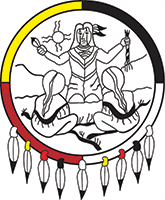 TBPL is transforming its four locations from stand alone public libraries into Community Hubs. A Community Hub is a space in which multiple services are located together, creating a one-stop shop for people in the community to access the resources they need. Each community hub provides services or amenities that respond to and are shaped by the unique circumstances, needs and assets of the surrounding community. The Community Hub at Waverley library, for example, is built on a solid and seamless relationship with Anishinabek Employment and Training Services (AETS). Partnership working and shared space will create benefits for major stakeholder groups, including library staff and patrons.
TBPL is transforming its four locations from stand alone public libraries into Community Hubs. A Community Hub is a space in which multiple services are located together, creating a one-stop shop for people in the community to access the resources they need. Each community hub provides services or amenities that respond to and are shaped by the unique circumstances, needs and assets of the surrounding community. The Community Hub at Waverley library, for example, is built on a solid and seamless relationship with Anishinabek Employment and Training Services (AETS). Partnership working and shared space will create benefits for major stakeholder groups, including library staff and patrons.Monday, July 2, 2018
Thunder Bay Library Stepping Up for Truth and Reconciliation
Library patrons have noticed the changes in the layouts of the libraries. These changes are part of a new exciting vision, to provide space and services to Aboriginal people. Thunder Bay has the highest proportion of indigenous people among major Canadian cities and I, as a frequent library patron, have noticed that the local aboriginal people, including many families with children, are heavy users of the library.
Look for future changes, new washrooms, elevator at Waverley, etc and an elder in residence.Exciting times.
Decolonization is a necessary process for creating community led and needs based public libraries. Partnerships with Indigenous organizations are a step towards decolonization. Partnerships transform strategies, structures and systems and challenge the organizational culture.
At Thunder Bay Public Library (TBPL) decolonization is an outcome of our Reconciliation and Relationship Building Strategy and Action Plan. This work was led by our Indigenous Liaison in consultation with our Indigenous Advisory Council. For TBPL decolonization is a conscious act and not a metaphor. It is a process of unlearning the settler colonial culture and practice of the public library. It is a sharing of space, power and resources because we are all Treaty people. And it is a part of the TBPL Anti-Racism response to systemic institutional racism.
Thunder Bay has the highest proportion (12.7 per cent) of Indigenous people among major Canadian cities. The total population of Thunder Bay is 121,621 people, of which 15,445 are Indigenous. TBPL is responding to the Truth and Reconciliation Commission Calls to Action and the Inquest into Seven Indigenous Youth who died in Thunder Bay. We are also responding to the Federation of Canadian Library Association recommendation to decolonize Libraries and Spaces by recognizing and supporting Indigenous cultures, languages and knowledge through culturally appropriate space planning, interior design, signage, art installations, territorial acknowledgements of geographic-specific traditional territories and public programming in collaboration with local Indigenous stakeholders.
 TBPL is transforming its four locations from stand alone public libraries into Community Hubs. A Community Hub is a space in which multiple services are located together, creating a one-stop shop for people in the community to access the resources they need. Each community hub provides services or amenities that respond to and are shaped by the unique circumstances, needs and assets of the surrounding community. The Community Hub at Waverley library, for example, is built on a solid and seamless relationship with Anishinabek Employment and Training Services (AETS). Partnership working and shared space will create benefits for major stakeholder groups, including library staff and patrons.
TBPL is transforming its four locations from stand alone public libraries into Community Hubs. A Community Hub is a space in which multiple services are located together, creating a one-stop shop for people in the community to access the resources they need. Each community hub provides services or amenities that respond to and are shaped by the unique circumstances, needs and assets of the surrounding community. The Community Hub at Waverley library, for example, is built on a solid and seamless relationship with Anishinabek Employment and Training Services (AETS). Partnership working and shared space will create benefits for major stakeholder groups, including library staff and patrons.
The TBPL vision is to become the heart of the community – a welcoming and inclusive centre of social innovation and change. TBPL enables people to learn, grow and be inspired, and our values include intellectual freedom, sharing and recycling, access for all, inspiring creativity, being our best, and being relevant. Working with AETS will enhance and help us deliver these objectives, and also our Strategic Directions to encourage lifelong learning, support our local economy, promote diversity and social inclusion, embrace change and Innovation, and foster community well being and personal growth. Partnership working will also boost the number of personal visits, physical circulation, library membership and programs. These are the success criteria by which TBPL is monitored, measured and funded.
Partnership working will enable investment in our buildings via a planned program of Community Hub Development. The improvements to the AETS leased space is the first stage of the Waverley library renewal. The next phase will see the opening up of the old entrance, and a new elevator and washrooms. We will then move onto renewal of the upper level with more public space and meeting rooms. Partnership working helps to shift organizational culture which in the TBPL context means Decolonization and Anti Racism. For example, AETS will provide an Elder in Residence and work with us to create an Indigenous Knowledge Centre.
Subscribe to:
Post Comments (Atom)









































































































































































































































































No comments:
Post a Comment